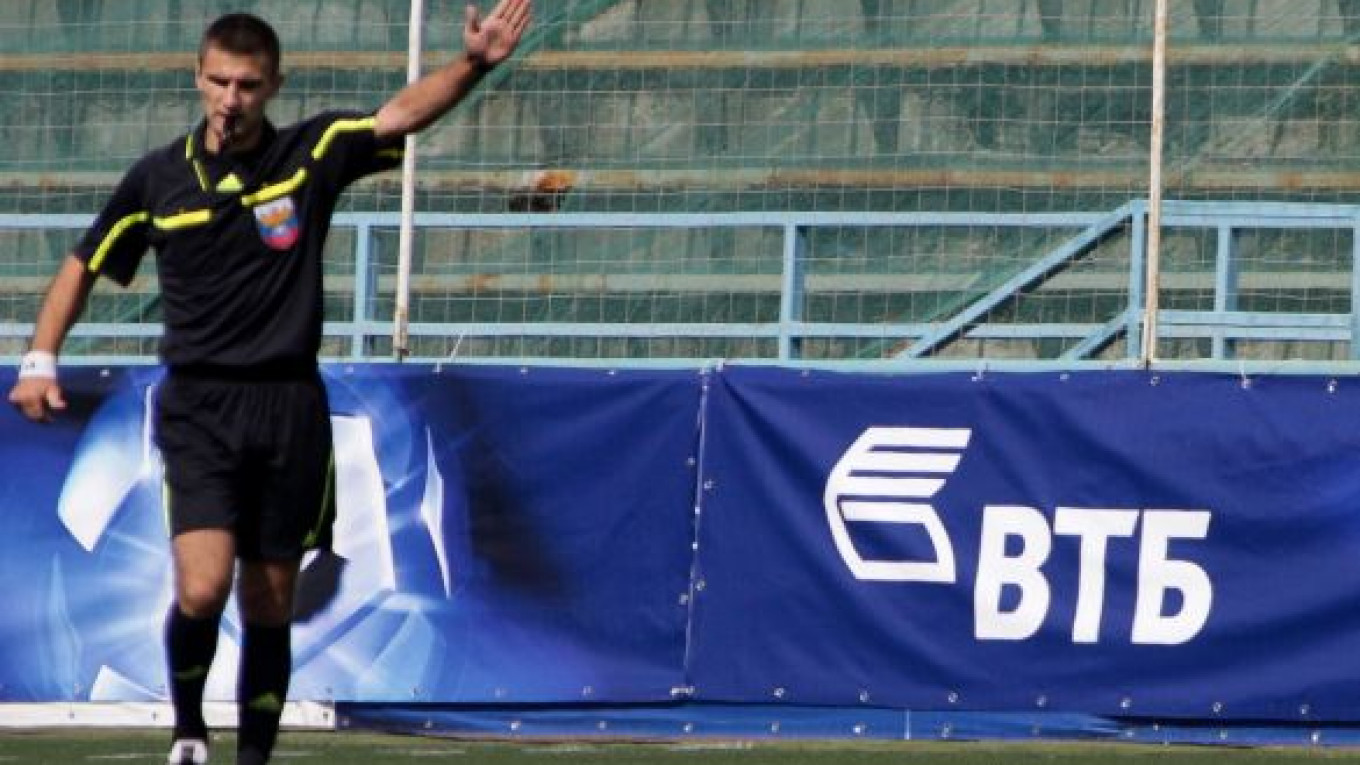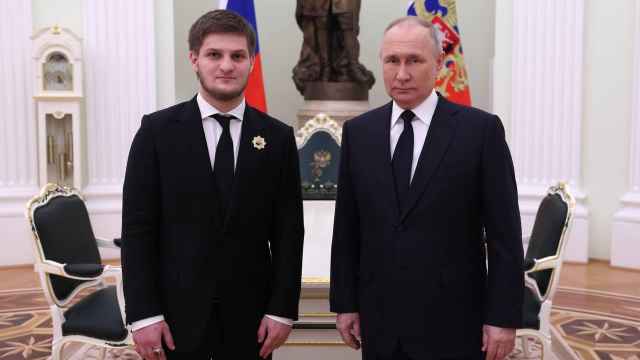The Kremlin plans to introduce new legislation to fight corruption and match-fixing in sports that could send offenders to jail for up to seven years.
Sports Minister Vitaly Mutko said Friday that the tough measures, which also include fines of up to 1 million rubles ($32,000), would be in place before the end of the year.
"We're talking about a whole set of measures aimed to fight the falsification of results, illegal betting and match-fixing," Mutko said. "Wire-tapping would be one of them."
While Russia is getting ready to host football's 2018 World Cup, experts say that widespread match-fixing and corruption have been rife in the domestic game but that offenders are rarely convicted or brought to trial.
Only one team, second division Iriston Vladikavkaz, has been found guilty of attempted match-fixing. It was thrown out of the league in 1997 but later reinstated in a lower division.
Chris Eaton, a former head of security for football's world governing body FIFA, has urged Russia to get tough on match-fixing rather than just acknowledge the problem.
"You can just go through FIFPro's so-called 'Black Book' to find out how deep the problem is in Eastern Europe and Russia," Eaton said earlier this year.
FIFPro, the global union for professional players, published a survey of nearly 3,400 players from Eastern Europe this year that said match-fixing in Russia was as high as 43.5 percent.
Mutko, who also heads the 2018 World Cup's local organizing committee, feels the new measures would help police bring the criminal element to justice.
"The most important thing is to create a legal instrument that would allow the law enforcement agencies to effectively deal with any suspicious results or matches," Mutko said.
However, the president of the country's bookmakers association was skeptical the new measures would work.
"I think it could only create more headaches for us because it would make us responsible for keeping track of all our records," Oleg Zhuravsky told local media.
A Message from The Moscow Times:
Dear readers,
We are facing unprecedented challenges. Russia's Prosecutor General's Office has designated The Moscow Times as an "undesirable" organization, criminalizing our work and putting our staff at risk of prosecution. This follows our earlier unjust labeling as a "foreign agent."
These actions are direct attempts to silence independent journalism in Russia. The authorities claim our work "discredits the decisions of the Russian leadership." We see things differently: we strive to provide accurate, unbiased reporting on Russia.
We, the journalists of The Moscow Times, refuse to be silenced. But to continue our work, we need your help.
Your support, no matter how small, makes a world of difference. If you can, please support us monthly starting from just $2. It's quick to set up, and every contribution makes a significant impact.
By supporting The Moscow Times, you're defending open, independent journalism in the face of repression. Thank you for standing with us.
Remind me later.






